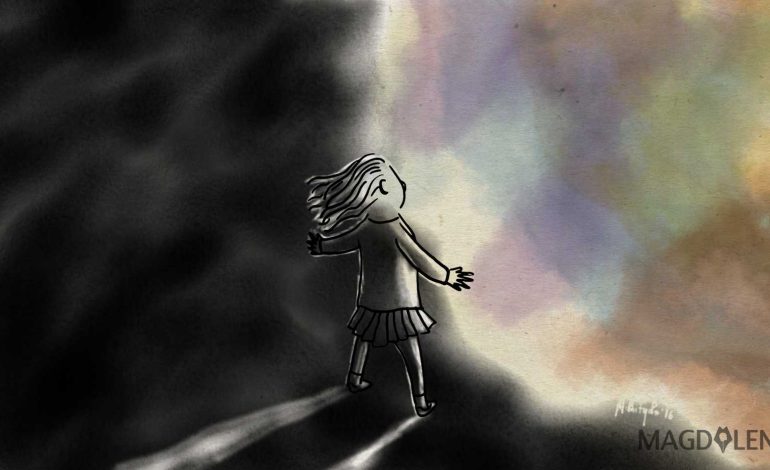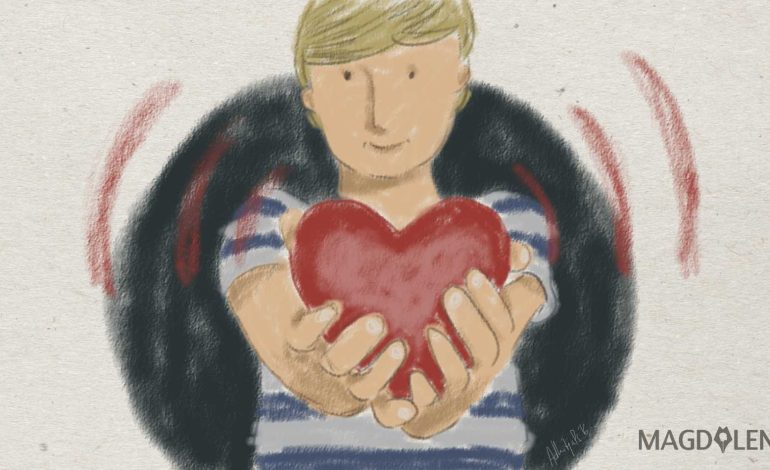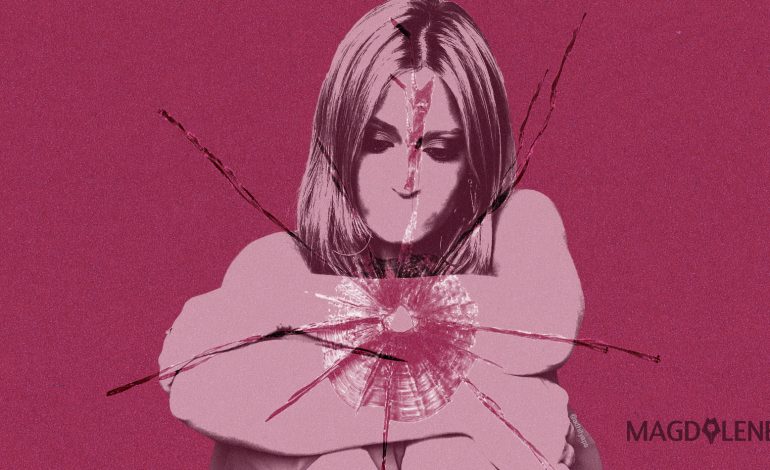Why I Choose Not to Believe

I’ve seen many of my friends or acquaintances put up fights against some gross injustices that oppress them or things that are important to them. They defend the rights of homosexuals, or advocate equal rights for women, or champion vegetarianism and ethical treatment of animals. They bravely speak up in public space against an unjust government, or fight for interracial and interfaith marriage. Each of them rumbles against society, against a world that imposes unjust values on their lives.
Reflecting on those amazing individuals, I wondered if there was anything that I’d been struggling against, or something I had stood up for because it’s worth the fight. If there was anything I have accomplished in life, not just mundane achievements or acknowledgment, but something useful and worthy.
I realized then that if there is one thing that I’ve been trying to smash and rebel against since I was a child, it is the wall of religion. The wall that has been confining me and condescending to my humanity.
I remember how I was taught that people of different religions than mine would be sent to hell, even if they were good people. I remember how I was very close to my Christian cousins and how much I loved them, but how my heart ached, because in Islamic teaching I was taught they were sinners.
Even as I was attending an Islamic elementary school, I decided I would go to a Catholic junior high school in the city after I graduated. This plan apparently bothered my teachers and friends so much that they kept trying to convince me not to do it. They talked about Christianity and made up stories about Muslims who attended Christian schools and ended up converting to Christianity. My teachers even scorned me in front of the class about my plan.
In junior high, one of my teachers denigrated Buddhism while teaching Catholicism class. She directed her hate speech at a Buddhist classmate. My family members kept preaching me that my non-Muslim friends were not good people, because they’re not Muslims. When I fell in love with a Catholic girl, my parents physically abused me for years. There were times when they confronted my friends, accusing them of badly influencing me.
In university, some friends tried to convert me to Christianity. I enjoyed being friends with them and I didn’t really care about religion anyway, so going to church to spend time together was just fine to me. But I was disappointed and heartbroken when I found out that they were, in fact, trying to get me to convert. All I sought for a sincere friendship, but all they cared about was their own personal divine gain.
I used to go to Friday prayers because my parents forced me to. There were also times I tried going to a Christian church because some friends invited me to come along. There, I saw that as much as Muslims badmouthed Christians, the sentiment was mutual. Just like how Muslim preachers insult other religions during those Friday Prayer sermons, I found the same thing done by the Christian preacher who talked about other religions. Both sides claimed that other religions were controlled by demons. They don’t even know about those other religions, but they hate them.
Since I was in elementary school, I had always been silent about my disbelief in religion and particularly the kind of God people talked about. I had my own belief that what mattered was kindness and that if God existed, God would be about love and benevolence.
Moreover, I’ve read science since I was five and learned how the earth was an ocean of plasma million years ago. I read about dinosaurs, evolution, how universe was formed, black hole, and various ancient beliefs and mythologies that have influenced the development of Abrahamic religions. When these explanations made sense to a 10-year-old child, naturally that very child would question against religious teachings, especially if the religion kept indoctrinating people to hate their fellow human beings.
To me, it is because of religion’s judgmental nature that two people who love each other cannot be together due to their different faiths. It is because of religion that the LGBT people are mentally and physically oppressed. It is because of religion that many ancient texts were demolished throughout history because they were deemed satanic.
To me, religions, at least the Abrahamic religions, teach sexism or gender inequality by saying God created men, and women were created from men and hence women belong to men. You can argue that religion teaches love, but you cannot deny there are verses that also teach hatred. Many people have been murdered due to religious reason – this is a fact we cannot deny.
People claim that religion teaches truth, but it forbids its believers from being inquisitive, teaching them to not question life and universe. What I’ve seen, instead, is that the fear of losing believers drives religions to threaten people who question the absolutism of their teaching, and to deem them as deserving of punishments. Religion dictates me to enjoy animal slaughtering, and, thus, to shed blood for the deity.
My whole life I’ve been pushed and pulled by people who want me to practice a certain religion against my will. I’ve been threatened if I didn’t obey. Not only am I not allowed to believe in science despite its evidence basis and its mathematical precision, I am also not allowed to choose which religious belief I want to identify myself with and practice.
That is why I understand how religious oppression feels like, how it violates my rights and my essence of humanity, and how it spreads fear instead of love. Instead of salvation, it feels like religion was a form of slavery in my life.
I want to be free to choose my own belief, and that is what I’m fighting for: to stop the coercion of faith, to not have to be secretive about what I believe in and what I practice, to have the liberty of choice without any fear of harm and intimidation.
I know there are other people out there who struggle for the same thing as I do. There are those who want to ask so many questions, seeking answers outside of the dogma. There are those who want to freely believe in whatever they believe as true, and to exercise their beliefs without having to be persecuted for it or put down by people of other religions.
I don’t hate religion. Neither do I argue for people to leave their religions, but I believe religion should be about setting us free, about comfort and security. In fact, because I have learned about various religions, I sometimes defend religious teachings to people who misunderstand them, especially those other than their own belief. I do so because I believe that religion has to be universal, and without label or any boundaries. It should not constrain, rather it should unconditionally salvage.
Liswindio Apendicaesar has been raised in Muslim family and went to Catholic junior high and high school. He has been an atheist since he was a child and now has been learning Buddhism for five years. He is an editor in Journal of Asian Medical Students’ Association International.






















